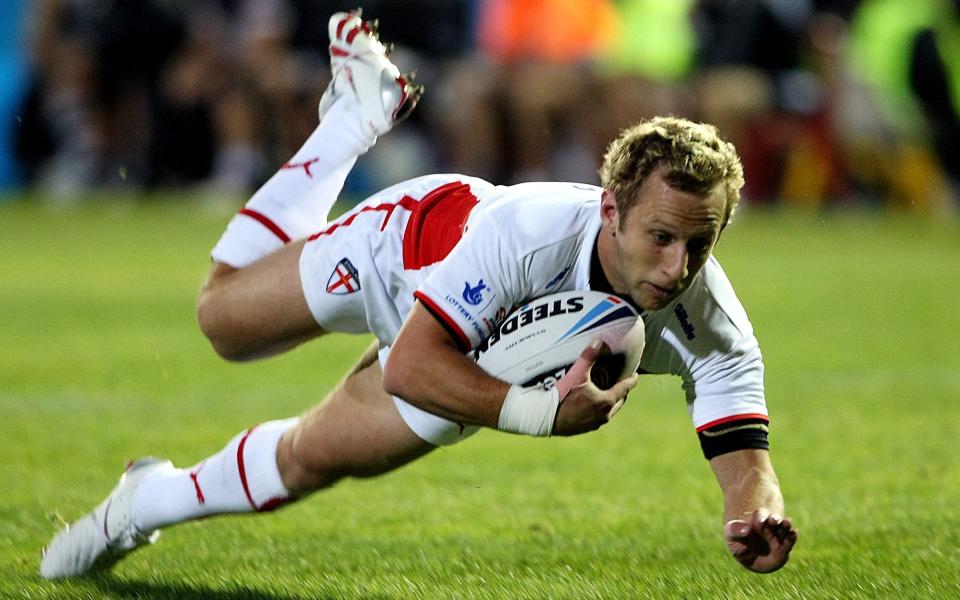What are sport’s links to MND after Rob Burrow and Doddie Weir died from debilitating illness?

It was shortly before Doddie Weir’s death in 2022 that the University of Glasgow released a piece of research that was the first to specifically analyse the brain health outcomes of former international rugby players.
They were 2.67 times more likely to develop neurodegenerative disease than the wider population but, even within that, the study contained what researchers called a “standout high risk” in relation to motor neurone disease (MND).
The 412 former Scotland internationals were 15 times more likely to be afflicted by this devastating, fatal disease. Yes 15 times. And, while we must of course take into account the sample size and the relative rarity of the disease before drawing definite conclusions, the tragic passing of the inspirational Rob Burrow should surely also focus minds on the need for further answers.
The Glasgow study, after all, was not some isolated bolt from the blue in relation to contact sport.
The same researchers had studied former footballers in 2019 and, from a much larger sample size of more than 8,000 ex-professionals, their landmark research found that they were four times more likely to die of MND.
Italian former players were also previously studied and, of more than 7,000 former players, the risk factor for MND was found to be “severely increased” at around six times the expected rate.
American footballers from the NFL are another group who have been assessed, this time by researchers from Harvard University and Boston University, who found that they were four times more likely to die of the disease.
The Industrial Injuries Advisory Council has also been studying neurodegenerative disease across contact sports since 2020 and, in the minutes of its March meeting in 2023, their experts reported that “motor neurone disease seemed to show the strongest indication there may be an association”.
Academics emphasised link to head impacts
From Burrow, Weir, Ed Slater and Joost van der Westhuizen to Don Revie, Jimmy Johnstone, Stephen Darby, Len Johnrose and Marcus Stewart, the anecdotal sense of former footballers and rugby players being disproportionately impacted also feels striking. Many others have suffered more anonymously and three of the group currently taking legal action against various governing bodies – of which two have died and one is still alive – were diagnosed with MND.
It should be stressed that MND can be influenced by a multitude of other environmental, lifestyle and genetic factors. We also know sport brings other major health benefits and researchers have also found links between frequent intense exercise and MND.
The Italian researchers, however, did subsequently extend their study to basketball and road cycling and could find no similar correlation in risk. The American academics were also specific in emphasising the link to head impacts.
“We believe this novel finding linking a longer career to increased risk of ALS [MND] adds to the growing evidence that repetitive head impacts from playing football are contributing to professional players developing ALS [MND],” said co-author Dr Daniel Daneshvar, an assistant professor at Harvard Medical School.
In post-mortems, researchers in Boston also found cases of former American footballers presenting with both MND and chronic traumatic encephalopathy, which is a type of dementia directly linked to head impacts.
The MND Association, MND Scotland and My Name’5 Doddie Foundation are now funding a study by the Glasgow researchers, led by Professor Willie Stewart, to specifically explore the potential link between traumatic brain injuries and MND.
The urgent question for sports administrators, however, is whether they should wait for further research before taking greater preventative measures.
Prof Stewart, who was himself an amateur rugby player and a huge fan of the sport, has called for a major scaling back of contact training and matches. “I am genuinely really concerned about what’s happening in the modern game [and] whether in 20 years’ time, if we repeat the study, we may see something which is even more concerning,” he said.
“Is it credible that young men and young women are playing week-in, week-out for the majority of the year just for entertainment? Is there a way we can trim back? I know it is tough to think about less rugby than more - but maybe less is more.”
Prof John Fairclough, of player welfare group Progressive Rugby, said that leaders must make “brave decisions that will ensure both players and sports can have a long and healthy future”.

 Yahoo Sport
Yahoo Sport 






































